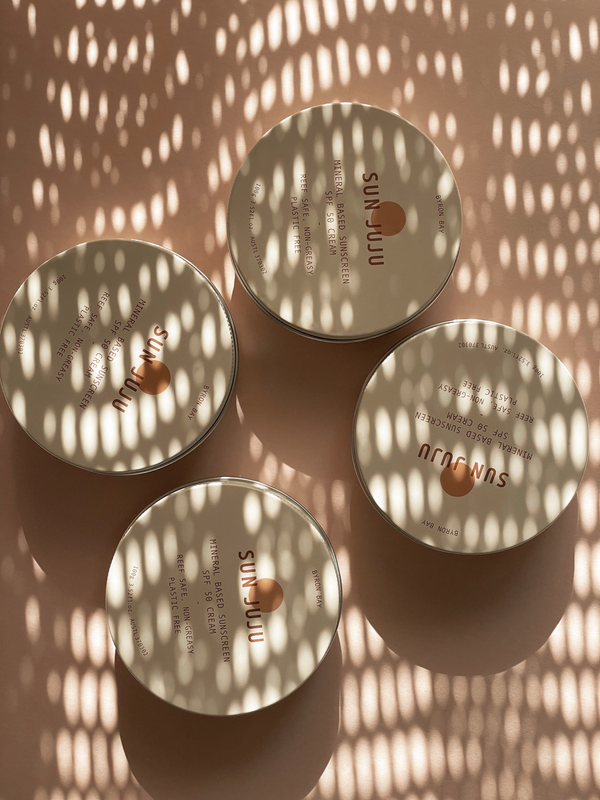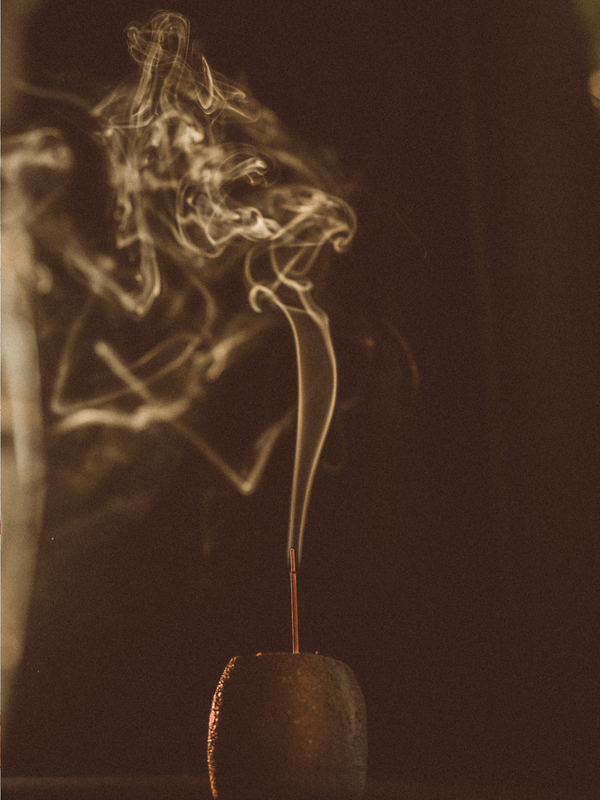Creating Plastic-Free Skincare With Sun Juju

A salubriously applied layer of SPF is the most important step in any skincare routine. And yet, the products we slather on often contain chemicals and plastics that can have adverse effects on the health of the ocean and coral reefs. That’s where Sun Juju comes in. The idea for this Byron Bay-based brand was conceived while founder Ella Liascos lamented over how difficult it was to buy high quality, plastic-free products. “A friend and I were talking about all the things I couldn’t get not packaged in plastic and the fact sustainable products at the time were pretty subpar alternatives,” recalls Ella, who was 27 at the time. “We got carried away about how great it would be to make the perfect sunscreen. I ended up taking the idea seriously and have rolled with it ever since.”
Ella’s commitment to cutting out single-use plastics took shape a decade ago, during what she describes as a wellness journey to address struggles with stress. “I healed myself through educating myself and it was then that I realised how important living aligned with our body’s natural rhythms is. From then on, I used only natural products for my skin and my home.” Ella went camping in the Western Australian wilderness, worked on a permaculture farm in remote Belize and spent a month in a seaside village in Goa undertaking yoga teacher training. “Because of those experiences and through orienting myself around nature, I developed a desire to preserve and protect the natural places I love.”
When setting out to make her perfect sunscreen, Ella had a few non-negotiables: it had to be naturally derived, non-greasy, mineral-based, reef-safe, plastic-free and contain no questionable ingredients. The packaging was important, too. “I like the things I do have in my life to be beautiful and of high quality,” she says. But creating such a product is no easy feat. As Ella explains, “SPF is tricky. There’s lots of regulations, restrictions and high minimum-order quantities.” It took Ella two years to formulate and fund Sun Juju, and she says what sets this SPF apart is that “there’s no compromises for your skin or the environment. It’s designed to wear daily, like a moisturiser. And it’s not packaged in plastic. To be considered truly reef-safe, sunscreens should be plastic-free. 11.1 billion plastic pieces are entangled in corals, causing disease.”
When she’s not working tirelessly to make plastic-free sunscreen the new normal, Ella can be found “attempting to surf” at Wategos Beach in her adopted home of Byron Bay. Since launching in 2021, Sun Juju has received heartfelt feedback from customers who say they have finally found a great mineral sunscreen they can use on sensitive skin. What’s more, Ella has found a growing, like-minded community. “It’s been wonderful connecting with amazing people who really care and are trying to reduce their impact as well.”
Ella’s top five ways to live more sustainably
- Start reading. The more you know, the more motivated you are to change. I recommend reading Local Futures by Helena Norberg-Hodge and Braiding Sweetgrass by Robin Wall Kimmerer.
- Set realistic goals. Take inventory of what’s achievable for you, your lifestyle and your financial situation, and from there come up with a list of changes to slowly work through.
- Change your perception from ‘consumer’ to ‘custodian’. Prioritise nature over everything. We are nature, it’s our wellbeing. Indigenous communities viewed themselves as stewards of the land and historically these cultures at the very least managed to maintain the natural world. First Nations People were successful stewards of the land for over 40,000 years and we managed to ruin it in just a couple of centuries. Braiding Sweetgrass is a great book to get a sense of this.
- Consume less. A culture of consumerism is the root of all our problems, not just environmentally but mentally, too. Just look at all the negative messages the beauty industry has perpetuated over the years that make people feel like they’re not enough. We need to go back to the mentality of our grandparents: buy less, buy quality, repair things or turn them into rags, up-cycle furniture. Where possible, look to buy secondhand before buying new.
- Learn to recycle. I find learning how to recycle gives a real sense of where our trash ends up and it doubles as a natural motivator to want to buy less.
